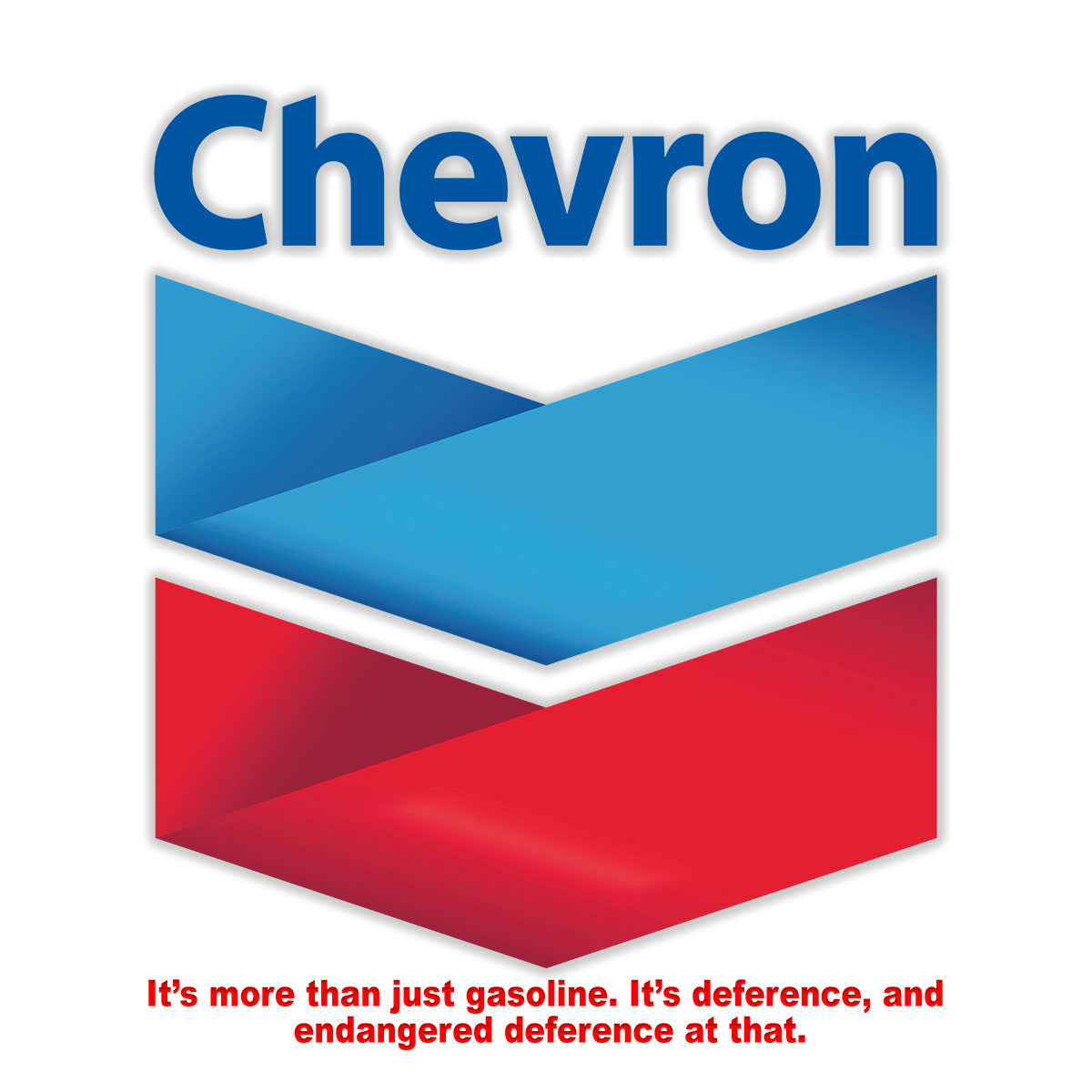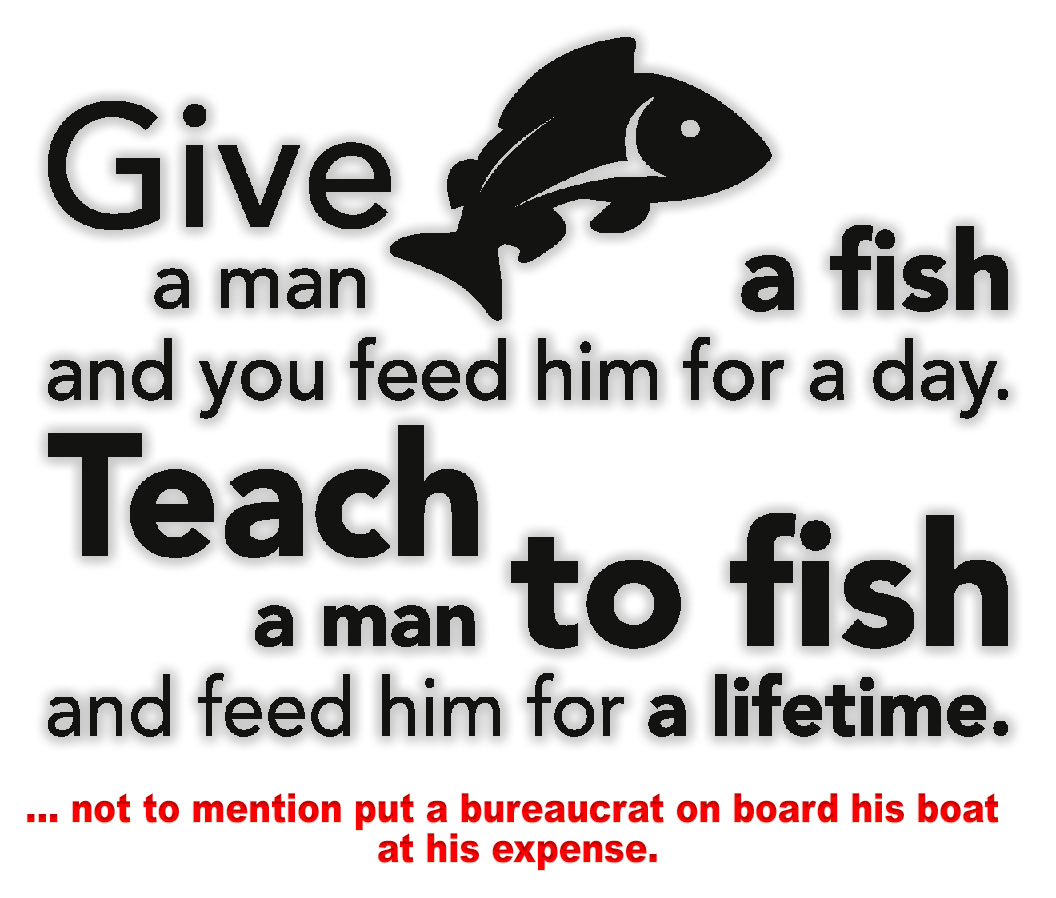We post news and comment on federal criminal justice issues, focused primarily on trial and post-conviction matters, legislative initiatives, and sentencing issues.

SCOTUS TAKES AIM AT CHEVRON DEFERENCE, AND WHY YOU SHOULD CARE
 Nearly 40 years ago, the Supreme Court ruled in Chevron USA, Inc., v. Natural Resources Defense Council that courts should defer to a federal agency’s interpretation of an ambiguous statute as long as that interpretation is reasonable. Last Monday, the Supreme Court agreed to reconsider its ruling in Chevron.
Nearly 40 years ago, the Supreme Court ruled in Chevron USA, Inc., v. Natural Resources Defense Council that courts should defer to a federal agency’s interpretation of an ambiguous statute as long as that interpretation is reasonable. Last Monday, the Supreme Court agreed to reconsider its ruling in Chevron.
“Chevron deference” – as the doctrine is known – has been applied in well over a thousand cases involving the Federal Bureau of Prisons over the past four decades. In Yi v. Federal Bureau of Prisons, for instance, the 4th Circuit ruled that “rather than apply a presumption of lenity to resolve the ambiguity, Chevron requires that we defer to the agency’s reasonable construction of the statute. Chevron deference is a tool of statutory construction whereby courts are instructed to defer to the reasonable interpretations of expert agencies charged by Congress to fill any gap left, implicitly or explicitly, in the statutes they administer.”
In Lopez v. Davis, for instance, the Supreme Court upheld the BOP’s denial of RDAP credit to people with drug convictions if they had a 2-level gun enhancement (USSG § 2D1.1(b)(1)). The Court focused on the statutory text (18 USC § 3621(e)(2)(B)), which instructs that the BOP ‘may’ reduce the sentence of a nonviolent offender who has successfully completed a drug treatment program, The Court found that Congress’s use of the permissive “may” meant that the BOP had the authority but not the duty to reduce the terms of imprisonment of people in RDAP, and, applying Chevron deference, “the Bureau, the agency empowered to administer the early release program, has filled the statutory gap in a way that is reasonable in light of the legislature’s revealed design.”
Currently, district courts have applied Chevron deference to the BOP’s interpretation of the First Step Act alone in over 150 reported cases. Chevron deference has permitted agencies to be nearly immune to judicial second-guessing on both major and minor questions. The case coming to SCOTUS raises Chevron in a rather prosaic circumstance.
A group of commercial fishing companies challenged a National Maritime Fisheries Service rule that requires the fishing industry to pay for the costs of observers who monitor compliance with fishery management plans.
Relying on Chevron, a divided US Court of Appeals for the DC Circuit rejected the companies’ challenge, holding that the law says the government can require fishing boats to carry monitors, it does not specifically address who must pay for the monitors. Because the NMFS’s interpretation of federal fishery law as authorizing industry-funded monitors was a reasonable one, the DC Circuit said, the court should defer to that interpretation.
Some members of the Supreme Court’s conservative majority have roundly criticized Chevron deference. Justice Thomas argued in 2015 that Chevron deference “wrests from Courts the ultimate interpretative authority to say what the law is, and hands it over to” the executive branch. He has been joined by Justice Gorsuch, who last fall argued in a dissent that the court “should acknowledge forthrightly that Chevron did not undo, and could not have undone, the judicial duty to provide an independent judgment of the law’s meaning in the cases that come before the Nation’s courts.”
 The Washington Post said, “The dryness of the [Chevron] doctrine masks the enormity of what is at stake. Chevron holds that a federal court must defer to an agency’s interpretation of a statute when issuing a rule, provided the interpretation is “reasonable…” This might seem like a straightforward ruling; in fact, it authorized a massive shift in power from Congress and the courts to the president. Most of the administrative agencies subject to Chevron are run by presidential appointments. These officials might have subject matter expertise, but their knowledge does not negate the fact that they make inherently political judgments, which the Constitution envisioned would be made by elected legislators.”
The Washington Post said, “The dryness of the [Chevron] doctrine masks the enormity of what is at stake. Chevron holds that a federal court must defer to an agency’s interpretation of a statute when issuing a rule, provided the interpretation is “reasonable…” This might seem like a straightforward ruling; in fact, it authorized a massive shift in power from Congress and the courts to the president. Most of the administrative agencies subject to Chevron are run by presidential appointments. These officials might have subject matter expertise, but their knowledge does not negate the fact that they make inherently political judgments, which the Constitution envisioned would be made by elected legislators.”
The case will be argued and decided next year.
Loper Bright Enterprises v. Raimondo, Case No 22-451 (certiorari granted May 1, 2023)
SCOTUSBlog, Supreme Court will consider major case on power of federal regulatory agencies (May 1, 2023)
Chevron, USA Inc v. Natural Resources Defense Council, 467 US 837 (1984)
Yi v. Federal Bureau of Prisons, 412 F.3d 526 (4th Cir. 2005)
Lopez v. Davis, 531 U.S. 230 (2001)
Washington Post, The demise of the Chevron doctrine is nigh (May 4)
– Thomas L. Root

